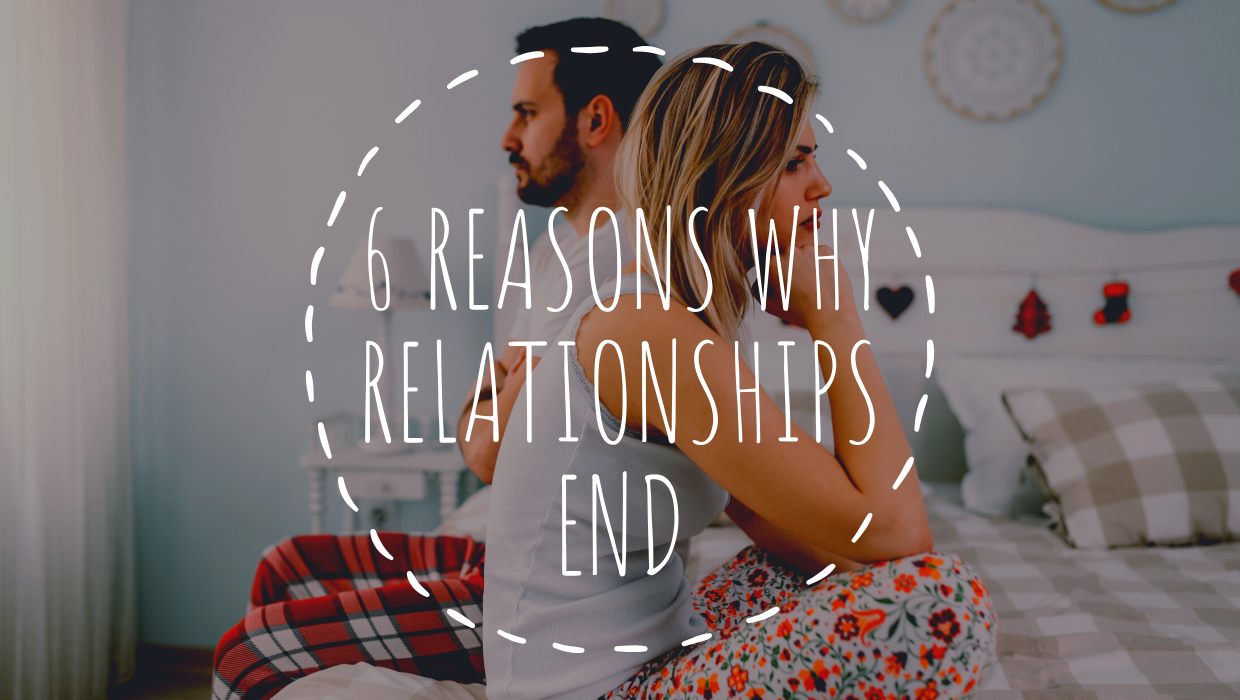There are many reasons why couples break up. Experts often blame money, sex, in-laws, children, and other life circumstances. But these are not at the core of why couples break up. All of these circumstances boil down to some underlying issues in the relationship. So why do couples break up?
1. Lack of Intimate Time
Finding time together is not always about schedules or hectic lives. It’s more often about finding time for passion in the relationship.
It’s challenging enough o find time to connect with your partner. Beneath the surface, the more significant issue is usually a lack of desire to spend time mutually.
This makes sense. We often prefer dealing with issues we can solve rather than ones we don’t understand. It’s easier to write in your journal, lecture, or have lunch with a co-worker.
It’s harder to talk about the issues brewing under the surface level in your relationship. It’s awkward and uncomfortable to bring up frustrations and to do so without sounding critical. Most of us are not comfortable talking about our deeply held wishes and needs in a relationship, and therefore it’s hard to be upfront about how you feel. You’re probably worried your partner will not understand.
When couples do talk about disappointments and wishes, a sort of anxiety develops, and they begin to avoid spending time together. It’s almost automatic: the mind that tries to protect us wants to concentrate on what feels comfortable. While this tendency serves, it’s a purpose, it’s counterproductive to building intimacy.
2. Detecting Dishonesty
Close connections require loving honestly, which involves enabling our companion to understand our real character. Honesty is more profound than just the absence of lying. Dishonesty includes being vague or giving nebulous explanations, telling half-truths, manipulating information, and denying your partner’s emotions or knowledge.
Dishonesty alters the bond and denies the other person informed choice. Although you may regard yourself as honest, you may not fully acknowledge your perceptions and feelings toward the person we are intimate with. It takes bravery to be open and genuine.
It can be overwhelming and traumatic to realize that the one we adore and trust has not been honest with us. It can destroy the perception we have about our partner and chip away at our self-esteem. Regrettably, victims of dishonesty often blame themselves. Both partners are responsible for speaking up and discussing issues. It may be useful to examine our own behavior, but it is never your fault if someone chooses to lie or be dishonest.
Relationships can survive dishonesty, but not without a loss of trust. It’s normal to react by denying the facts or the severity of the betrayal. It can take time to accept the impact that dishonesty has on us and the relationship. Making peace and healing yourself and the connection is essential.
3. Ineffective Communication
Issues arise in a relationship when partners do not know how to effectively and consciously communicate when it comes to intimacy, conflicts, and mutual growth. We should all seek to understand our partner’s inner world and express our own. This kind of communication creates a genuine connection.
If you struggle to communicate in this way, you will have difficulty growing and remaining intimate in your relationships. If there is a disconnect, therapy for yourself or as a couple may be warranted. It’s better to accept that there is a communication issue than let your relationship suffer.
4. Money Problems
Sharing a life with someone isn’t just about romantic gestures. A committed relationship involves forming a financial partnership. How each partner spends money can affect every aspect of the couple’s life together. A foundational disagreement on how finances should be handled can quickly build resentment within the relationship.
With intention and communication, you can avoid the kind of money issues that often end relationships. The key is to understand how your partner handles money and communicate a plan together so that finances don’t adversely affect your love.
5. Lack of Prioritizing
On the surface, we often proclaim that our partner is our number one priority. After all, you’d do anything for them, right? But do your actions match your intentions? Looking back on your calendar for the last month, would it reflect plenty of date nights and intimate connections, or would it reflect more social events and work obligations? What do you really prioritize in your life?
Genuine connection requires effort. Even if you and your partner share the same interests, morals, and goals, the act of daily prioritizing and maintaining your relationship can be the real challenge.
6. Not Enough Respect
To respect another person is to truly understand that they are an individual. They are not an extension or reflection of you. They are not your toy, your pet, or your accomplishment.
You build respect for your partner by taking the time and energy to understand the other person as an individual; By seeking to understand their viewpoint, thoughts, feelings, dreams, and goals. Further, respect is built by cheering for your partner and helping them to achieve their goals.
Being a partner means not trying to control or change the other person. This kind of love brings bliss to the relationship. By creating space for you both to be individuals, you create a safe space for love and growth. This type of support and emotional bond helps to carry the relationship through even the most trying times.

When to End a Relationship
Sometimes it’s clear that you and your partner need to break up. For example, if you fight all the time, or one partner never seems to support the other. Or if there is physical or emotional abuse.
But many times, the signs are subtle, and it can be challenging to make the decision to call it quits. Maybe one or both of you have simply fallen out of love. Perhaps you’ve simply grown apart but still care about each other. If one of these situations describes your relationship, you may feel confused and unsure of whether to end it. You may ask yourself, “should I just work harder to rebuild our bond?” Working on the relationship is a valid and logical step.
But here’s the thing: If you’ve already put in the work and feel like you can’t try any harder, it’s probably time to end the relationship.
You don’t need to carry resentment or hate your partner to want to move on. If you’ don’t feel happy or fulfilled in your relationship, that’s enough to end it. It’s your life and your choice.


